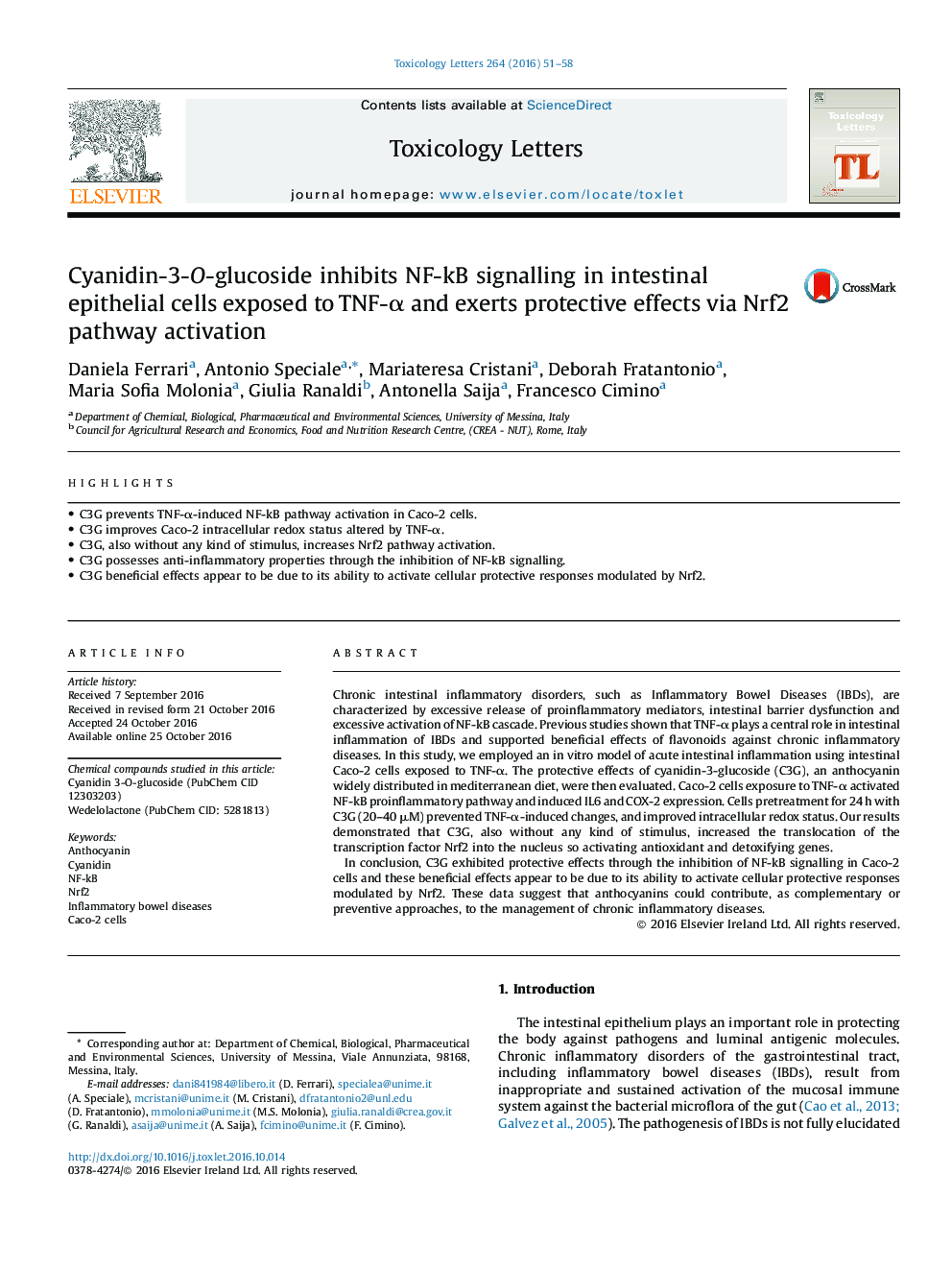| کد مقاله | کد نشریه | سال انتشار | مقاله انگلیسی | نسخه تمام متن |
|---|---|---|---|---|
| 5562287 | 1562609 | 2016 | 8 صفحه PDF | دانلود رایگان |

- C3G prevents TNF-α-induced NF-kB pathway activation in Caco-2 cells.
- C3G improves Caco-2 intracellular redox status altered by TNF-α.
- C3G, also without any kind of stimulus, increases Nrf2 pathway activation.
- C3G possesses anti-inflammatory properties through the inhibition of NF-kB signalling.
- C3G beneficial effects appear to be due to its ability to activate cellular protective responses modulated by Nrf2.
Chronic intestinal inflammatory disorders, such as Inflammatory Bowel Diseases (IBDs), are characterized by excessive release of proinflammatory mediators, intestinal barrier dysfunction and excessive activation of NF-kB cascade. Previous studies shown that TNF-α plays a central role in intestinal inflammation of IBDs and supported beneficial effects of flavonoids against chronic inflammatory diseases. In this study, we employed an in vitro model of acute intestinal inflammation using intestinal Caco-2 cells exposed to TNF-α. The protective effects of cyanidin-3-glucoside (C3G), an anthocyanin widely distributed in mediterranean diet, were then evaluated. Caco-2 cells exposure to TNF-α activated NF-kB proinflammatory pathway and induced IL6 and COX-2 expression. Cells pretreatment for 24 h with C3G (20-40 μM) prevented TNF-α-induced changes, and improved intracellular redox status. Our results demonstrated that C3G, also without any kind of stimulus, increased the translocation of the transcription factor Nrf2 into the nucleus so activating antioxidant and detoxifying genes.In conclusion, C3G exhibited protective effects through the inhibition of NF-kB signalling in Caco-2 cells and these beneficial effects appear to be due to its ability to activate cellular protective responses modulated by Nrf2. These data suggest that anthocyanins could contribute, as complementary or preventive approaches, to the management of chronic inflammatory diseases.
Journal: Toxicology Letters - Volume 264, 15 December 2016, Pages 51-58